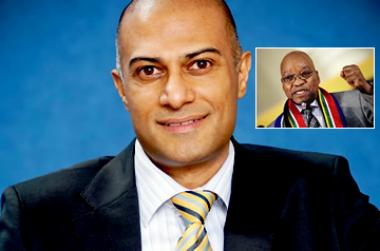SA Property Owners upset with ban of Foreign Land Ownership in SA
 The implementation of the Regulation of Land Holdings Bill would reduce foreign investor confidence in South Africa, affecting the economy as a whole, said SAPOA CEO Neil Gopal.
The implementation of the Regulation of Land Holdings Bill would reduce foreign investor confidence in South Africa, affecting the economy as a whole, said SAPOA CEO Neil Gopal.
Last week's announcement by President Jacob Zuma during his State of the Nation Address (SONA), regarding proposal to restrict foreign nationals from owning land, has disappointed the South African Property Owners Association (SAPOA).
The security of the ownership of properties owned by foreigners, including multinational corporations that have invested in South Africa, has been placed in doubt by comments made by the President.
According to SAPOA, the President’s statement raises concern about the possible impact on foreign land ownership of property companies, game farms as well as foreign investments in hotels in South Africa.
The government has been publicly discussing the policy for over two years but it is back in the spotlight after President Zuma announced in last week’s State of the Nation Address that Foreigners will not be allowed to own land in South Africa.
"Regulation of Land Holdings Bill will be submitted to Parliament this year,” Zuma said.
Under the proposed Bill, “foreign nationals and juristic persons […] as well as juristic persons whose dominant shareholder or controller is a foreign controlled enterprise, entity or interest” will be prohibited from owning land and instead only eligible to lease land for periods of between 30 to 50 years.
The ban is aimed at farm or agricultural land not residential property.
In addition, the Bill sets a ceiling of land ownership that restricts the amount of land that any individual — regardless of nationality — can own to 12,000 hectares.
Should an individual own land in excess of that amount, the government will purchase and redistribute the land.
“The implementation of such a policy would reduce foreign investor confidence in South Africa, affecting the economy as a whole,” highlights Neil Gopal, Chief Executive Officer of SAPOA.
“The issue of land reform proposals in South Africa is nothing new,” says Gopal. “As the issue escalates, it has the potential to hamper investor confidence in the country and curb foreign direct investment flows. Foreign investment in property boasts benefits for the commercial property industry, and with such proposals put forward, the industry falls prey to negative knock-on effects,” adds Gopal.
SAPOA feels that the change in policy is not justified. “South Africa’s property market is best served by a policy framework which offers investors certainty of land tenure, the promotion of domestic and foreign investment and which supports the allocation of land to its highest and best use on a sustainable basis,” explains Gopal.
While we support initiatives to redress the injustices of the past in a balanced manner, we don't believe such land reforms will be positive as the policy is discriminatory and will most likely impede foreign direct investment and job creation,” adds Gopal.
“I do not believe that the Deeds Registries is in any position to provide reliable or accurate information on the actual extent of foreign land ownership in South Africa. Until we know this, one cannot implement policy changes,” says Gopal.
“We would like to engage with government with the view of jointly finding solutions to this matter,” concludes Gopal.
Of further concern is the plan to do away with the willing buyer willing seller principle. "Section 25 of the SA Constitution enshrines the right to property. No law may permit arbitrary deprivation of property." Says Gopal
"It is critical that South Africa navigates through the sensitivities of land reform with greater vision to ensure that the injustices of the past are dealt with and that economic stability continues to be reinforced" added Gopal













